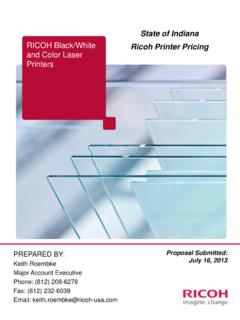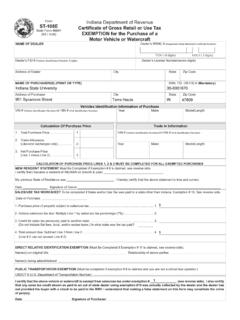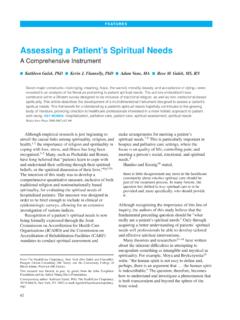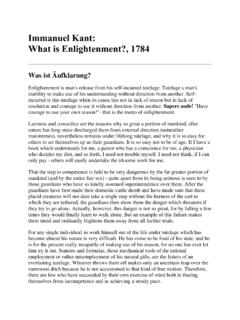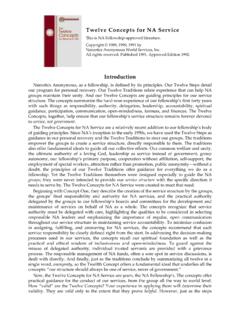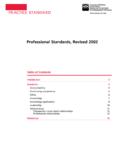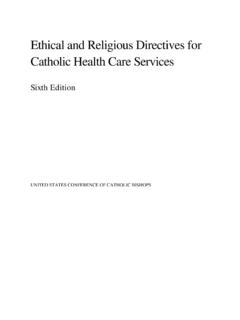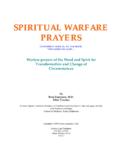Transcription of Student Success: Definition, Outcomes, Principles and ...
1 The following material has been excerpted from The Big Picture, a column appearing in Esource for College Transitions (Electronic Newsletter), published by the National Resource Center for the First-Year Experience & Students in Transition, University of South Carolina. Student Success: Definition, Outcomes, Principles and Practices Joe Cuseo Marymount College Defining Student Success: The Critical First Step toward Promoting It Student success is a term that appears frequently married in higher education discourse.
2 The term leads logically to the following trio of questions: 1) What constitutes Student success? (How should Student success be defined or described?) 2) How do postsecondary institutions promote Student success? (What specific types of educational processes contribute to, or increase the likelihood of Student success?) 3) How can Student success be measured or assessed? (What constitutes evidence that Student success has been realized and that certain experiences during the first year are responsible for its realization?
3 The answer to the first question in this three-step process provides the critical foundation for launching the quest for Student success in an accurate direction. Webster s dictionary defines success as a favorable or desired outcome. Thus, Student success may be defined as a favorable or desirable Student outcome. In my estimation, the following desirable outcomes have been the most frequently cited indicators of Student success in higher education. Student Retention (Persistence): Entering college students remain, re-enroll, and continue their undergraduate education.
4 (For example, first-year students return for their sophomore year.) Educational Attainment: entering students persist to completion and attainment of their degree, program, or educational goal. (For example, 2-year college students persist to completion of the associate degree, and 4-year college students persist to completion of the baccalaureate degree). Academic Achievement: students achieve satisfactory or superior levels of academic performance as they progress through and complete their college experience.
5 (For example, students avoid academic probation or qualify for academic honors.) Student Advancement: students proceed to and succeed at subsequent educational and occupational endeavors for which their college degree or program was designed to prepare them. (For example, 2-year college students continue their education at a 4-year college, or 4-year college students are accepted at graduate schools or enter gainful careers after completing their baccalaureate degree.) Holistic Development: students develop as whole persons as they progress through and complete their college experience.
6 This outcome consists of multiple dimensions, which may be defined or described as follows: - Intellectual Development: developing skills for acquiring and communicating knowledge, learning how to learn, and how to think deeply. - Emotional Development: developing skills for understanding, controlling, and expressing emotions. - Social Development: enhancing the quality and depth of interpersonal relationships, leadership skills, and civic engagement. - Ethical Development: formulating a clear value system that guides life choices and demonstrates personal character.
7 - Physical Development: acquiring and applying knowledge about the human body to prevent disease, maintain wellness, and promote peak performance. - spiritual Development: appreciating the search for personal meaning, the purpose of human existence, and questions that transcend the material or physical world. This holistic aspect of Student success is consistent with recent research and interest in such concepts as multiple intelligences (Gardner, 1999), emotional intelligence or EQ (1995), and spiritual intelligence (Zohar & Marshall, 2000).
8 It is also consistent with the vast majority of college mission statements and institutional goals, which include many outcomes that are not strictly academic or cognitive in nature (Astin, 1991; Kuh, Shedd, & Whitt, 1987). The implications of this holistic definition of Student success for one very desirable Student outcome Student retention is underscored by research which repeatedly demonstrates that the vast majority (75-85%) of students who withdraw from college do so for reasons other than poor academic performance; in fact most departing students are in good academic standing at the time of their departure (Noel, 1985; Tinto, 1993).
9 More recently, these findings were reinforced by institutional research conducted at Indiana University, Bloomington, which launched a broad range of initiatives to enhance the quality of the first-year experience and to improve Student retention. One conclusion drawn after implementation of these initiatives was that strict concentration on academic matters does not have a significant impact on Student retention without equal concentration on non-academic elements of Student life (Smith, 2003). Thus, Student success may be best defined as a holistic phenomenon that embraces the multiple dimensions of personal development and the multiple goals of higher education.
10 The next step in the Student success-promoting process is to identify the central Principles or critical features of learning experiences that are most likely to implement this comprehensive definition of Student success and realize its intended outcomes. Seven Central Principles of Student Success: Key Processes Associated with Positive Student Outcomes The critical first step toward promoting Student success is to define it, , to identify positive Student outcomes that represent concrete indicators of Student success.

